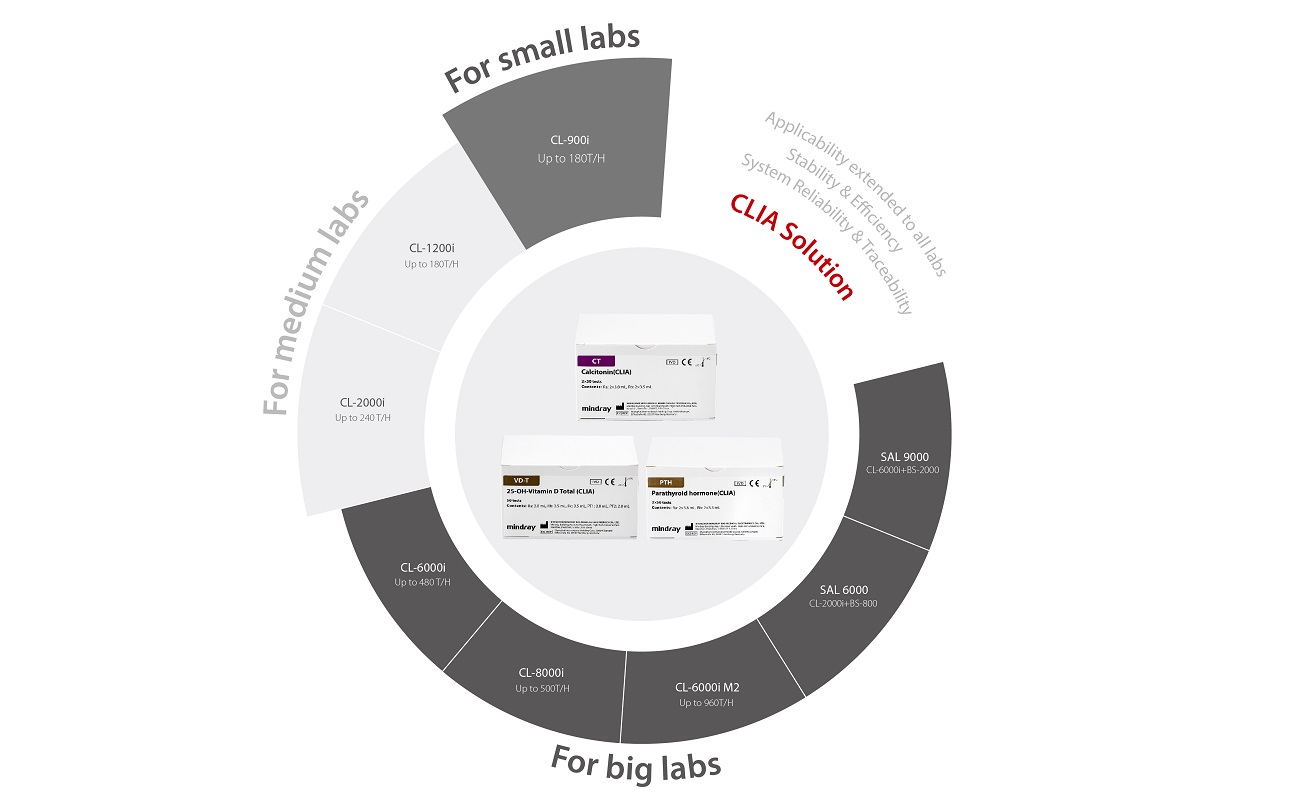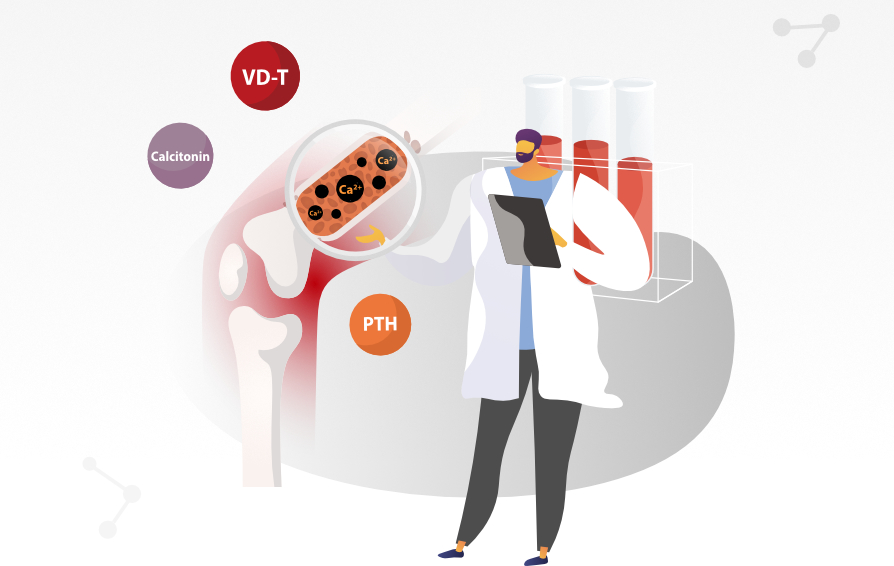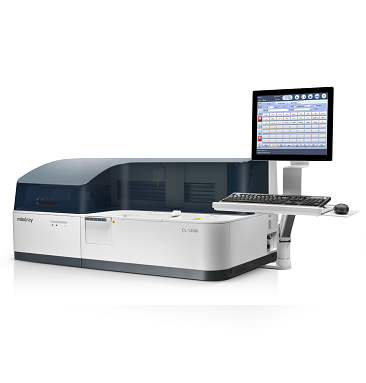Calcium plays an important role not only in bone health but also in the functioning of the nervous and muscular systems. Maintaining a specific range of serum calcium in the blood is critical for the body to function properly and ensure survival.
The bones act as a reservoir for calcium, releasing it into the blood circulation when serum calcium levels (calcium in the blood) are low. The body maintains calcium balance in the blood through the actions of vitamin D, calcium, and a hormone called parathyroid hormone (PTH). When the concentration of calcium in the blood is low, the parathyroid glands start to secrete PTH, which stimulates the release of calcium from the bones and into the blood. PTH also prompts the kidney to increase the production of 1,25-dihydroxyvitamin D (1,25(OH)2D) by converting 25-hydroxyvitamin D (25(OH)D) into 1,25 (OH)2D. When the kidney starts producing 1,25(OH)2D, it facilitates increased absorption of calcium by the gut, ensuring an adequate intake of calcium into the body.
On the other hand, when the calcium levels in the blood are elevated, it triggers negative feedback that signals the parathyroid glands to reduce the secretion of PTH. As a result, PTH instructs the kidney to decrease the production of 1,25(OH)D. This, in turn, helps to prevent excessive calcium absorption and allows the body to lower its blood calcium levels. The thyroid gland secretes calcitonin to reduce calcium levels in the blood by functioning in a manner opposite to PTH (Fig. 1).
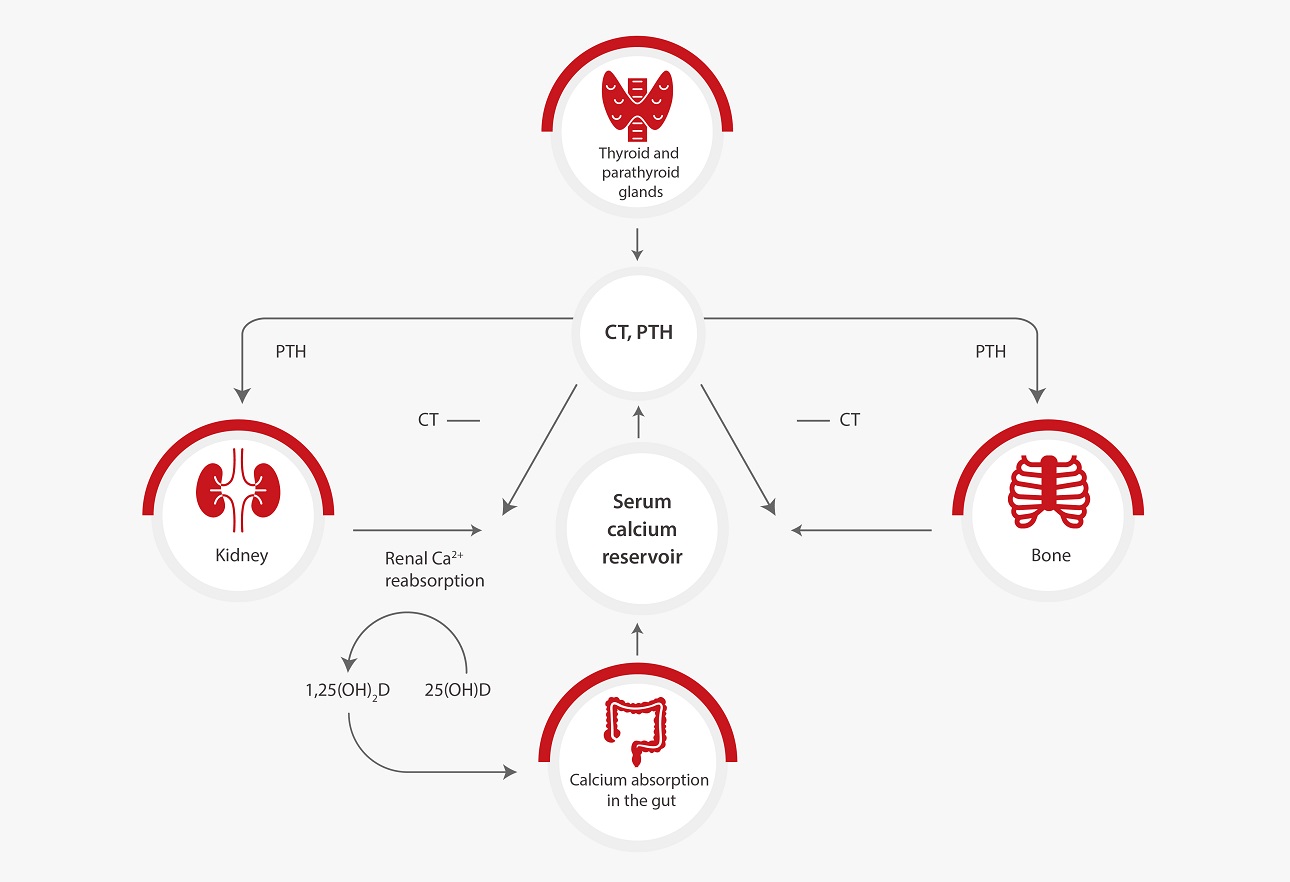
Get treatment for hypocalcemia
Hypocalcemia is a treatable condition characterized by low levels of calcium in the blood. Various health conditions can cause hypocalcemia (Fig. 2), and it is often the result of abnormal levels of PTH or vitamin D in the body. Hypocalcemia may manifest as mild or severe, and it can be temporary or chronic (lasting throughout one’s life).
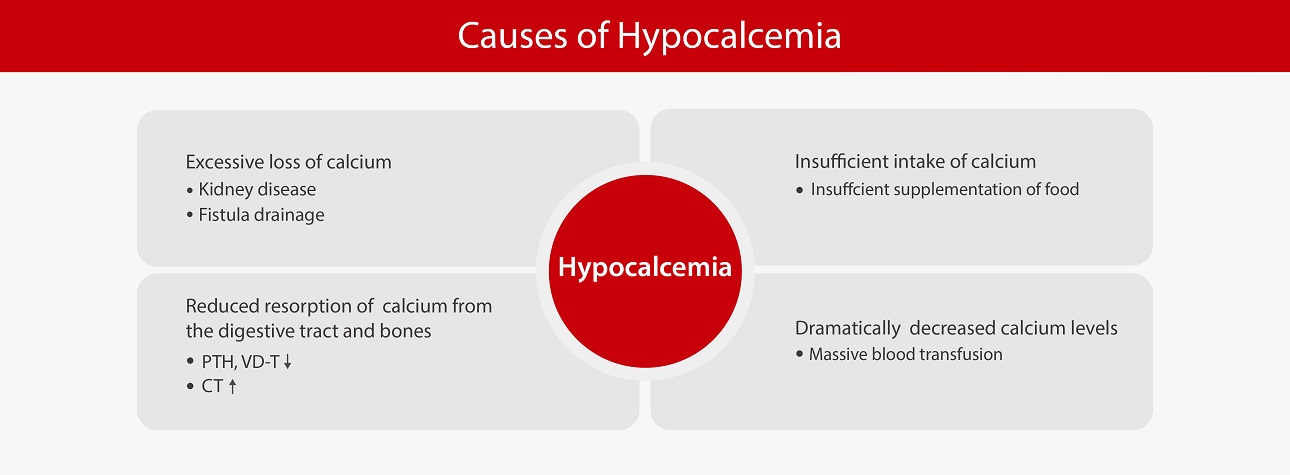
Hypercalcemia is a risk for several heath conditions
Hypercalcemia is a condition in which the calcium level in the blood exceeds the normal range. Excessive calcium in the blood can lead to bone weakening, the formation of kidney stones, and disruption of proper heart and brain function. Hypercalcemia is usually a result of overactive parathyroid glands. Other causes of hypercalcemia include cancer, specific medical disorders, certain medications, and excessive intake of calcium and vitamin D supplements (Fig. 3).

Testing markers
The laboratory testing of serum markers PTH, VD-T, and CT is a valuable tool for individuals who are suspected of having a calcium metabolic disorder.
Mindray now offers high-quality bone metabolic biomarkers, including VD-T, PTH, and CT assays, to cater to various clinical requirements.
